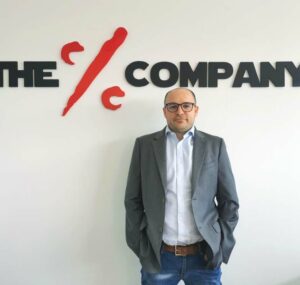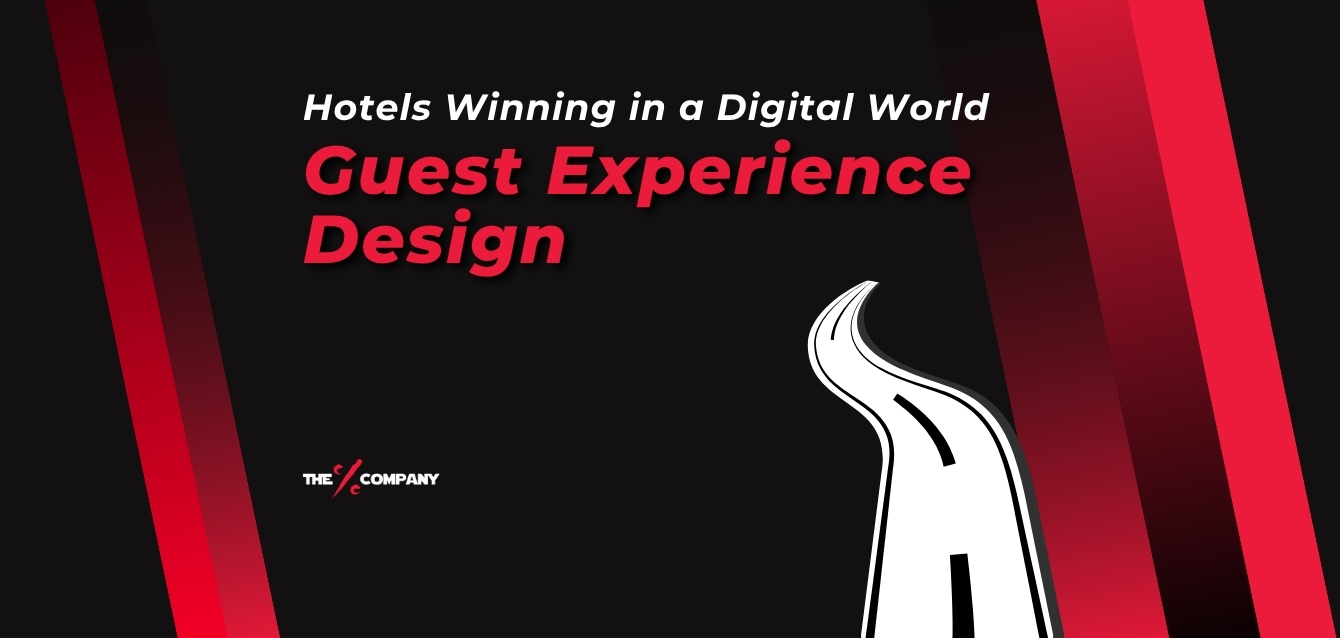It was a great pleasure to have been invited as a guest speaker at the Faculty of Hospitality and Tourism, Prince of Songkla University, Phuket Campus yesterday, to deliver a session for the Bachelor of Business Administration students on the subject of designing digital guest experiences & design thinking.
I enjoyed sharing ideas on digital innovation, service design, and creative process management, and it was great to receive such thoughtful and insightful feedback from the students.
A big thank you to the faculty and students of PSU Phuket for the warm welcome and engaging discussion!
Here is a summarised version of my presentation to the PSU students here for your reading pleasure! 🙂
In 2025, the hospitality industry is no longer defined by lobbies, check-ins, or room service, it’s defined by digital touchpoints.
From the first Instagram scroll to the final thank-you email, the modern guest journey unfolds online long before it reaches your front desk. Today, the most successful hotels don’t just manage rooms, they design digital experiences that speak directly to human emotions, preferences, and behaviors.
At The Percentage Company, we believe the future belongs to hotels that can speak fluent guest, and that language is digital. Designing digital guest experiences isn’t about building prettier websites or adding flashy tech. It’s about understanding behavior, removing friction, and crafting moments that feel effortless, personal, and connected.
Let’s explore how hospitality brands can use Design Thinking and technology to elevate guest experience, drive direct bookings, and build loyalty that lasts.
Why the Guest Experience Matters More Than Ever
Hospitality has evolved faster in the past decade than in the previous century. Guests now expect mobile-first design, instant responses, personalized communication, and seamless integration across every device and channel.
But here’s the key shift: guests no longer compare your booking flow to other hotels, they compare it to Netflix, Amazon, and Airbnb, brands that understand their users better than they understand themselves.
Some quick facts that illustrate this digital reality:
- 73% of hotel bookings in Thailand come via OTAs (TAT, 2025).
- 89% of travelers use mobile devices for trip planning.
- 78% of hotel website traffic is mobile, yet fewer than 0.5% of those visits convert (Google, 2025).
- Guests interact with an average of 18 digital touchpoints before making a booking (Google Travel Study, 2025).
- 70% of OTA users say they would book directly if price and experience matched.
The takeaway is simple:
- Every frustrated click is a lost booking.
- Every seamless interaction is a future advocate.
Understanding the Modern Guest Journey
The guest experience doesn’t begin at check-in, it begins at inspiration. Every traveler’s journey is digital, emotional, and highly fragmented. Yet when mapped clearly, it reveals powerful opportunities for hotels to add value at every stage:
- Dreaming – Guests discover destinations through Instagram, TikTok, or travel vlogs, where emotions and visuals drive desire.
- Researching – They compare OTAs, read reviews, and even ask ChatGPT for recommendations.
- Booking – The critical decision point: does your website inspire trust and make booking easy?
- Pre-Arrival – The opportunity to personalize: send pre-check-in details, upgrades, transport, or special offers.
- Stay – Where digital meets personal: mobile keys, WhatsApp concierge, and tailored local experiences.
- Post-Stay – Reinforcement and retention: feedback requests, loyalty rewards, and smart remarketing.
Each stage offers both risk and opportunity. A slow-loading website, unclear pricing, or unoptimized mobile UX can derail conversion. But when done right, every interaction becomes part of a consistent, connected guest story.
From Websites to Experiences: The Design Thinking Approach
At The Percentage Company, we apply Design Thinking to every solution we build, from booking engines to CRM systems to digital marketing strategies.
Why? Because it moves us from guesswork to guest work. It’s a structured, human-centered process for understanding what travelers truly want, testing ideas quickly, and building systems that feel intuitive and authentic. The five stages of Design Thinking are:
- Empathize – Understand your guests deeply. Analyze reviews, booking data, and digital behavior to identify emotions and needs.
- Define – Frame the real problem. Not “we need a new website,” but “guests can’t find the right room type that fits their needs.”
- Ideate – Brainstorm bold, boundary-pushing ideas, one-click booking, AI-powered personalization, live reviews, or loyalty gamification.
- Prototype – Build fast, fail fast, learn fast. Test mockups, demo pages, and automated email flows before full rollout.
- Test & Iterate – Measure, refine, repeat. Each iteration uncovers new insights and improves the guest experience.
This process isn’t linear, it’s a continuous loop of learning. Every test brings you closer to frictionless, conversion-ready design.
How Design Thinking Shapes Our Work with Clients
Design Thinking doesn’t just influence what we build, it defines how we work with our clients.
Whether we’re developing a booking engine, a ticketing platform, or a custom software system, our process begins with empathy, understanding both the guest’s experience and the hotelier’s challenges.
1. Collaborative Discovery
We don’t start with code; we start with conversation. Through workshops, user interviews, and journey mapping, we help clients uncover the real pain points behind surface-level symptoms. For example:
- Guests abandon bookings not because of price, but because checkout feels confusing.
- Staff struggle with ticket management not because of the system, but because it doesn’t mirror their workflow.
By grounding our development process in real-world use cases, we ensure every feature we build has a measurable purpose.
2. Prototyping with Purpose
Before a single line of code is written, we create interactive prototypes, visual mockups that simulate the end experience. This allows clients to see, feel, and test their future product early on. It also saves time and cost by identifying usability issues before development begins.
Our hotel booking engine, ticket booking system, and integrated CRM all evolved through hundreds of micro-prototypes, each refined through feedback from real hoteliers, guests, and agents.
3. Building for Scalability and Simplicity
Design Thinking drives us to design for humans first, and systems second. Our goal isn’t just to add functionality, it’s to make complex operations feel simple. That’s why:
- Our booking engine focuses on guest psychology, trust signals, urgency, transparency, and ease of comparison.
- Our ticketing platform is designed for venues, attractions, and tour operators who need flexibility without technical complexity.
- Our CRM and automation tools prioritize clarity, so hotel teams can act fast without deep technical knowledge.
Every product is built on the same principle: technology should adapt to people, not the other way around.
4. Continuous Feedback Loops
Once a system is live, our relationship doesn’t end. We continue to gather usage data, analyze behavior patterns, and iterate. Design Thinking turns this feedback loop into a growth engine, every insight feeds the next improvement, creating software that evolves alongside the client’s business.
Turning Insights into Action
Design Thinking only works when insights turn into measurable change. Here’s how hotels can apply it right now:
- Identify friction points: Where do guests drop off? Use analytics, heatmaps, and post-booking surveys to identify moments of confusion or hesitation.
- Define meaningful KPIs: Focus on metrics that reflect guest experience:
- Discovery: Bounce rate, session duration
- Booking: Conversion rate, abandonment rate
- Post-Stay: NPS, review sentiment, repeat rate
- Test one improvement per week: Small, fast experiments build momentum. Try:
- Simplifying the booking form
- Adding real-time chat
- Testing new subject lines in pre-arrival emails
- Personalizing offers for returning guests
Each micro-optimization compounds into measurable growth, higher conversion, better engagement, and more loyal guests. As we remind all our partners: If you can’t measure it, you can’t improve it.
Technology Should Amplify Hospitality — Not Replace It
It’s easy to see technology as impersonal, but when used well, it enhances human connection.
- Automated pre-arrival messages reduce guest anxiety.
- Smart upsell engines offer meaningful value, not spam.
- WhatsApp concierge systems build trust and personal rapport.
The magic happens when technology supports hospitality, not when it replaces it. As Ritz-Carlton famously says: “Technology should never replace hospitality, it should amplify it.” At The Percentage Company, we design systems that bring the human touch back into digital. When done right, automation creates more time for staff to focus on what matters most: people.
Final Thoughts: The Future of Digital Hospitality
The future of hospitality belongs to brands that merge empathy with data, where emotional understanding meets analytical precision.
Design Thinking provides the blueprint. Technology provides the tools. Hospitality provides the heart.
Because at the end of the day, we’re not just in the hotel business anymore, we’re in the experience business. The future belongs to hoteliers who can code-switch between guest empathy and Google Analytics.

Written By: Edward Kennedy
Co-Founder & Director at The Percentage Company. I started working on websites in 1997 and have been a full-time techie since 2001. I’m committed to leveraging the latest technologies and digital marketing techniques to drive efficiency & improve online sales for our hotel clients. I have a 20+ year track record of success in growing independent hospitality & real estate brands.






